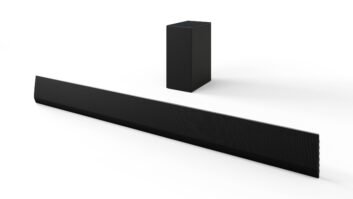Kodak made two dramatic changes last week in its business structure related to its retail digital printing efforts, folding its Phogenix joint venture with Hewlett-Packard and buying up the assets of Austin, Texas-based Applied Science Fiction.
Phogenix, the joint venture started by HP and Kodak three years ago, aimed at giving retailers a digital photo finishing system based around an inkjet print engine. The system, called DFX, would be far less expensive that traditional digital minilabs and was positioned as a quick way for retail locations to offer prints from digital media cards.
The system was being beta-tested by Best Buy’s Canadian subsidiary, Future Shop, in addition to New York-area photo retail locations. Retailers who tested the system expressed disappointment in the decision.
“It’s a shame, really, it’s great technology,” said James Park, president of New York-based ColorTek, who had been beta-testing the unit since last December.
“Once again, HP screws the little guy,” lamented Joel Paymer, owner of New York-based Camera Land. Palmer, who thought the DFX was a “phenomenal system,” suspected that HP’s desire to focus on home printing and inkjet printer cartridge sales was the driving force behind the dissolution.
Indeed, an HP spokesperson said that the company had decided to focus on home printing and digital camera sales.
Both HP and Kodak cited a lack of return on investment and agreed it was in the best interests of potential customers, employees and investors to terminate operations before any mini-labs were installed on a commercial basis.
Anticipating the dissolution of Phogenix, Kodak also announced the purchase of Applied Science Fiction, which had invented technology to process a roll of film in seven minutes with no chemicals as well as a suite of image correcting software.
According to Mike Conley, marketing VP, Applied Science Fiction, Kodak was principally interested in the company’s dry film processing technology (known as Digital Processing and Image Capture, or Digital PIC) which it intends to integrate into upcoming generations of its Picture Maker print kiosks.
Applied Science Fiction had recently incorporated Digital PIC into a kiosk-concept that it was testing in several retail locations across the country. It is a self -service station where consumers could input digital media cards or a roll of film to get images back in print or CD form (the system does not produce a traditional photo-negative).
It was the results of the retail tests that lured Kodak to scoop up the company, Conley said.
“A big question everyone wanted to see answered was if people could live without the negative, and our beta tests proved they didn’t care about the negative,” Conley said.
“As a result [of the acquisition], Kodak’s will be the first and only kiosks capable of taking any input, including film, and giving the consumer exactly the prints they want, in minutes, not hours or days,” said Dan Palumbo, president, consumer imaging products and services, Kodak.













